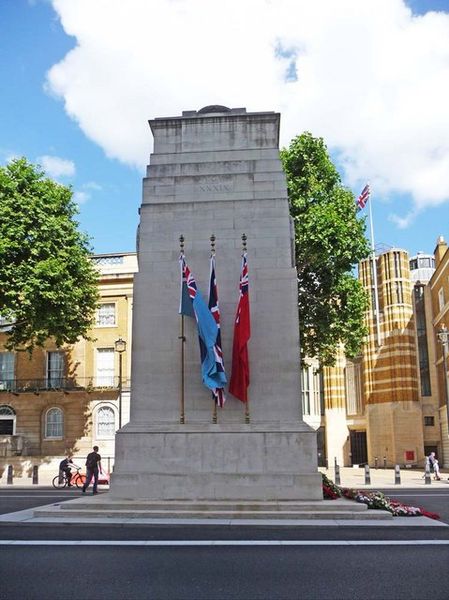
February 25, 2014, by Harry Cocks
Historians and the Politics of Commemoration
The recent spat between Conservative Education Secretary Michael Gove and the “left-wing historians” he blamed for distorting our view of World War One shows that anniversaries can provoke serious arguments about history and politics. In this case, Gove attacked those such as Regius Professor of History at Cambridge Richard Evans, whom he held responsible for promoting what he called the “Blackadder view” of the war as a futile and costly debacle led by incompetent and blinkered generals. Gove appeared to be relying for his own opinion on the work of Oxford historian Hew Strachan and the journalist Max Hastings to argue that the war was a necessary and worthwhile battle for liberty against a brutal German militarism.
If this dispute is anything to go by, we are due for plenty more similar public rows. A series of anniversaries are looming, not only the beginning of the First World War (August 1914), but also the battles of Waterloo (1815), and Bannockburn (1314 – neatly timed to coincide with possible Scottish independence), the Hanoverian succession to the British throne (1714), the Lutheran Reformation (1517), not to mention all the other battles and events that occurred during the Great War, including the Easter Rising in Dublin in 1916. In recent years there has been a “memory boom” in the public commemoration of historical events, from the establishment of the United Kingdom (1707) to the sinking of the Titanic (1912). Often, these anniversaries are the occasion for thinking about the past and its relationship to the present in a context outside the academy, and to a large extent beyond its influence. What should academic historians do during these events? Should they try and engage with public memory and the heritage industry on its own terms, or should they try and put right any errors or myths that have crept into these commemorations? Should they be put in charge of anniversaries like these?
These questions are addressed in a new roundtable in the journal German History (see link below) featuring Jörg Arnold of Nottingham History, along with Thomas A. Brady (University of California at Berkeley), Fearghal McGarry (Queen’s Belfast), Tim Grady (Chester), and Dan Healey (St Antony’s College, Oxford).
While Thomas Brady argues that professional historians should participate in commemorations in order to invigorate them with fresh perspectives, Dan Healey worries that in the UK at least, such interventions would be increasingly driven by an “Impact” agenda that requires academic research to reach out to the public according to the dictates of successive governments. Jörg Arnold argues that when faced with a tendency to simplify that results from commemoration, historians should do what they do best: their job, which is academic research. Historians should also point out that memory itself has a history and that it is used in different ways and for particular ends by “memory communities.” Also, he recognises that research takes time, often years, so it is hard to chase after a particular anniversary, unless – like some historians – you plan well ahead with that date in mind. Should historians join in with commemorations which are often historically naive? History is generally a myth-busting not a myth-making discipline, and so that might limit its appeal to a broader public interested in reaffirming particular positions. However, Healey points out that public outreach and rigorous scholarship are not necessarily incompatible, and that there are many audiences – not only opportunistic politicians keen to position themselves on the right of their party – eager to hear what is happening at the coal face of scholarship.
Forum: Anniversaries, German History 32, 1 pp.70-100.
http://gh.oxfordjournals.org/content/32/1/79.full
No comments yet, fill out a comment to be the first

Leave a Reply